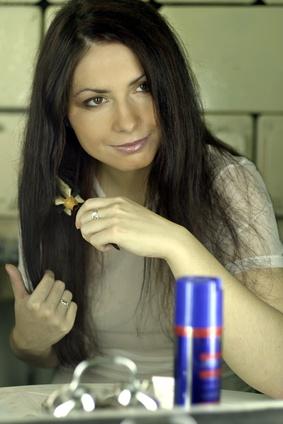Search Results for: American Society
Scientists Discover HIV/AIDS “Cure”?
An American man is HIV-free more than three years after receiving a stem cell transplant. German doctors believe this is the first cureto be discovered for HIV, the virus that causes AIDS. “Our results strongly suggest that the cure of HIV has been achieved in this patient,” said the study in the peer-reviewed journal Blood, a publication of the American Society of Haematology.
Can Ketoconazole Increase Hair Growth?
Women can use ketoconazole to treat hair loss, but its main purpose is to treat fungal infections. If you have a fungal infection of the skin or nails and nothing else works, doctors sometimes prescribe ketoconazole, according to the American Society of Health-System Pharmacists. Typically, people take ketoconazole as a tablet by mouth for fungal infections. If you use it to try to increase hair growth, you use it as a topical treatment.
Surrogate Mother Facts
According to the National Infertility Association, approximately 7.3 million individuals in the United States–one in every eight couples–struggle with infertility issues. The American Society for Reproductive Medicine says that one-third of those affected are women, one-third are men and one-third of the cases remain unexplained. For many of these couples, hiring a surrogate mother is one of the only ways they can bear a child together without the use of donor eggs or sperm or fertility drugs.
How to Treat Varicose Veins
Varicose veins most often affect the legs and feet. Valves in the veins that help to pump blood back toward the heart can weaken or be damaged. When this happens blood pools in the veins causing them to swell. While varicose veins may sometimes lead to complications, in most cases, the condition may cause discomfort, but not serious medical problems. The American Society for Dermatologic Surgery points out that even though some people are genetically inclined to get varicose veins, there are treatments and preventive measures that can help to minimize the symptoms.
What Causes Age Spots?
Members of the American Society for Dermatologic Surgery (ASDS) say that age spots are almost always caused by exposure to the sun. The sun stimulates melanin production, and if we make a habit of being out in the sun too long unprotected, brown spots can appear on the skin when we get older. Skin receives more sun damage over time, increasing the likelihood of developing dark pigmentations later in life. While sunspots are common in individuals with fair skin, people with darker complexions can also develop age spots. There are steps that women can take to prevent age spots, but first we have to have a better understanding of the causes.


